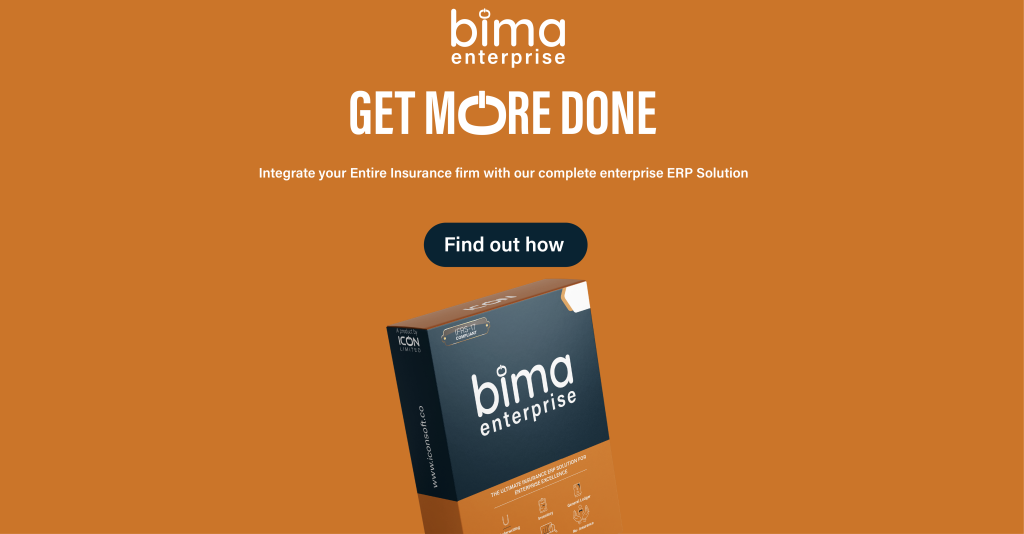In today’s fast-paced digital era, insurance firms must innovate and adapt to meet the evolving needs of their customers. Leveraging Enterprise Resource Planning (ERP) solutions and adopting a customer-centric approach are key strategies for achieving this goal. This blog explores five essential ways insurance firms can enhance customer satisfaction in policy deployment by integrating ERP solutions, emphasizing customer centricity, and offering local-based solutions.
1. Digital Transformation and Automation through ERP Solutions
Digital transformation is revolutionizing the insurance industry, and ERP solutions are at the forefront of this change. By automating and streamlining various processes, insurance firms can offer a seamless and efficient experience to their customers. Choosing the right ERP Solution for your insurance firm positions your firm better as opposed to the insurance firms using legacy/manual operations

Online Platforms and Self-Service Portals
Modern customers expect convenience and instant access to information. Insurance firms can meet this demand by developing user-friendly websites and mobile apps. These platforms should enable customers to manage their policies, make claims, and track their status in real-time. Self-service portals empower customers to perform tasks at their convenience, reducing the need for in-person visits or lengthy phone calls.
Automated Processes for Speed and Efficiency
ERP solutions can automate critical processes such as policy issuance, claims processing, and renewals. Automation reduces the time required for these tasks, ensuring that customers receive their policies quickly and claims are processed efficiently. This not only enhances customer satisfaction but also reduces operational costs for the insurance firm.
Using intelligent automation can streamline operations and automate slow manual processes, increasing insurers’ ability to respond to increased claim volumes with a minimal impact to their employees.
Enabling a digital worker (software designed to model and emulate human job roles by performing end-to-end job activities using automation) to extract key information, input customer data, create new claim files and verify claim coverage. This will allow the insurance team to focus on high value tasks such as claim adjudication and customer satisfaction.
Kainos.com
AI and Chatbots for Instant Support
Artificial Intelligence (AI) and chatbots are transforming customer support in the insurance industry. AI-driven chatbots can provide instant assistance, answer common queries, and guide customers through various processes. By offering 24/7 support, insurance firms can ensure that customers receive timely help whenever they need it.
2. Personalized Customer Experience with ERP and Data Analytics
Personalization is a cornerstone of customer-centricity. By leveraging ERP solutions and data analytics, insurance firms can deliver tailored experiences that resonate with individual customers.
Tailored Policies for Individual Needs
Every customer has unique insurance needs. Insurance firms can use ERP systems to gather and analyze customer data, enabling them to offer customized policies. For example, a young professional might need different coverage than a retiree. By tailoring policies to meet specific needs, insurance firms can enhance customer satisfaction and loyalty.
Data-Driven Insights for Targeted Offers
ERP solutions provide valuable insights into customer behavior and preferences. By analyzing this data, insurance firms can create targeted marketing campaigns and offers. For instance, if data shows that a particular demographic is interested in travel insurance, the firm can create tailored packages to meet this demand. Personalized offers not only attract new customers but also retain existing ones.

Proactive Communication through Preferred Channels
Effective communication is key to a positive customer experience. Insurance firms can use ERP systems to maintain detailed customer profiles, including preferred communication channels. Whether through email, SMS, or app notifications, proactive communication ensures that customers receive important updates and reminders in a timely manner. This level of personalization fosters trust and enhances the overall customer experience.
3. Transparent and Simple Policy Terms
Transparency and simplicity in policy terms are crucial for building trust and ensuring customer satisfaction. Insurance firms can leverage ERP solutions to achieve this.
Clear Communication of Policy Terms
Customers often find insurance policies confusing due to complex jargon and legal language. Insurance firms should prioritize clear and straightforward communication. Policy documents should be written in plain language, making it easy for customers to understand what is covered and what is not. Clear communication reduces misunderstandings and enhances customer satisfaction.
Educational Resources for Informed Decisions
Empowering customers with knowledge is a key aspect of customer-centricity. Insurance firms can provide educational resources such as webinars, FAQs, and guides. These resources help customers make informed decisions about their insurance needs. By offering tools that explain policy options, coverage details, and the claims process, insurance firms build trust and foster long-term relationships.
Open Disclosure of Pricing and Coverage
Transparency in pricing and coverage is essential for customer trust. Insurance firms should openly disclose premiums, fees, and the factors that influence policy pricing. Customers appreciate honesty and are more likely to remain loyal to a company that practices open disclosure. ERP solutions can streamline this process by providing accurate and up-to-date information to customers.
4. Enhanced Customer Support with ERP-Driven Solutions
Exceptional customer support is a hallmark of a customer-centric insurance firm. By leveraging ERP solutions, insurance firms can enhance their support services and ensure customer satisfaction.
24/7 Customer Service
Modern customers expect round-the-clock support. Insurance firms can use ERP systems to integrate various support channels, including phone, email, live chat, and social media. Providing 24/7 customer service ensures that customers can get help whenever they need it, enhancing their overall experience.
Dedicated Account Managers for Personalized Assistance
For high-value customers, personalized assistance can make a significant difference. Insurance firms can assign dedicated account managers to provide tailored support and guidance. Account managers can use ERP systems to access comprehensive customer profiles, enabling them to offer personalized recommendations and solutions. This level of attention builds strong relationships and increases customer loyalty.

Feedback Mechanisms for Continuous Improvement
Customer feedback is invaluable for continuous improvement. Insurance firms should implement feedback systems to gather customer input regularly. Surveys, feedback forms, and social media listening tools can provide insights into customer satisfaction and areas for improvement. By acting on this feedback, insurance firms can address issues promptly and enhance their services.
5. Value-Added Services with Local-Based Solutions
Offering value-added services and local-based solutions can set insurance firms apart from their competitors. These services not only enhance customer satisfaction but also add tangible value to the customer’s insurance experience.
Wellness Programs for Health-Conscious Customers
Health and wellness programs are increasingly popular among customers. Insurance firms can offer wellness programs that encourage healthy behaviors. For example, discounts on premiums can be offered to customers who participate in fitness activities or undergo regular health check-ups. These programs not only promote a healthy lifestyle but also reduce the risk of claims, benefiting both the customer and the insurer.
Risk Management Tools for Peace of Mind
Customers appreciate tools and resources that help them manage risks effectively. Insurance firms can provide risk management tools such as home safety tips, driving safety courses, and cybersecurity advice. These tools help customers prevent incidents and reduce the likelihood of claims. By offering proactive risk management solutions, insurance firms demonstrate their commitment to customer well-being.
Loyalty Rewards for Long-Term Customers
Loyalty programs are an excellent way to reward long-term customers. Insurance firms can implement loyalty rewards that offer benefits such as premium discounts, cashback, or additional coverage options. These rewards not only incentivize customers to remain loyal but also show appreciation for their continued business. ERP solutions can help manage loyalty programs by tracking customer activities and calculating rewards.
Conclusion
In conclusion, insurance firms can significantly enhance customer satisfaction in policy deployment by embracing digital transformation, personalizing customer experiences, ensuring transparency, providing exceptional customer support, and offering value-added services. ERP solutions play a crucial role in achieving these goals by streamlining processes, leveraging data analytics, and enabling efficient communication.
By adopting a customer-centric approach and focusing on local-based solutions, insurance firms can build trust, foster loyalty, and stay competitive in a rapidly changing market. As customers’ expectations continue to evolve, insurance firms must remain agile and innovative, always prioritizing the needs and preferences of their customers.
Great post!
I always enjoy how your content balances depth with readability.
Have you considered exploring how these ideas might intersect with sustainability or AI trends?
It’d be interesting to see your take on their broader implications.
Thanks for sharing such valuable insights—keep them coming!
Site – https://gpt.1stpage.ru